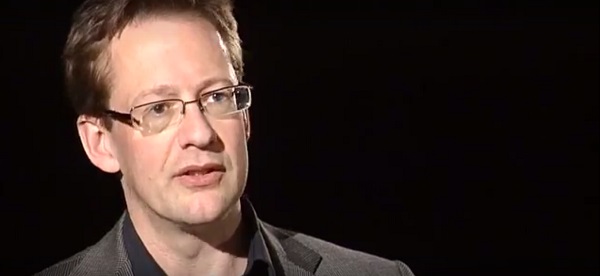
Under the central theme of 'What is Financial Ethics?', Prof. Dr. Philip Goodchild from the University of Nottingham will be offering two talks on 16 and 17 December 2015.
The first lecture, entitled 'Finance Ethics: Economics as a Theology of Money', will take place from 18:30 to 20:00 on Wednesday 16 December 2015. This talk will propose a reversal of the mainstream persepctive of financial ethics, which is concerned with how financial institutions and individuals can act with integrity. By contrast, this lecture will suggest that the justice of the markets is not simply an economic theory or a moral regulative ideal. If perfect markets are imaginary, the real economic institution dealt with in finance is money. To perfect the market expresses a mindset imposed upon those who work in finance simply through working with money created as debt, since money imposes upon all economic agents the obligation to seek a single utility, market value and to seek profits to repay debts and honour obligations. Thie mindset that adopts individuals, rather than being chosen on the grounds of self-interest or as a moral ideal, will be explained according to the four fundamental principles of a theology of money.
The second lecture, a masterclass from 09:30 to 12:00 on Thursday 17 December 2015, will focus on 'Credit and Debt: Matters for Economics, Philosophy and Theology?'
This workshop will examine how the recent financial crisis has exposed the fact that contemporary economic life is structured not simply as a market, but by a network of credt relations. These can be conceived as a way of exercising justice and prudence. When debts are imprudent and unpayable, they may require forgiveness - and may even require a theological understanding.
The financial crisis appears to challenge the faith that debts will be repaid, a trust in the efficiency and effectiveness of markets as well as a moral compunction. Even if sovereign governments are held hostage by their bond markets, central banks, working together in cooperation, have taken over bad debts without their stability being threatened, creating a situation where a belief in repaying debts is the condition for all financial activity, alongside a belief that certain institutions do not have to repay debts.
This workshop will explore the contradiction between the law that demands the repayment of debt and the grace which has the authority to forgive debts. It will explain how the temporal nature of economic life can be understood in terms of moral and religious categories, in contrast to the secular fiction of a market. This will be achieve by facilitating informal conversation, encounter and debate. Registered participants will be circulated with two as of yet unpublished papers by Professor Goodchild, one based on oral presentation and the other written for publication. Participants will then be invited to offer critical responses to Goodchild's theological approach, or put forward their own ideas to such an outlook.
The two lectures have been organised by the Luxembourg School of Religion & Society, with the support of the Department of Philosophy of the University of Luxembourg. Philip Goodchild studied Mathematic and Theology and Religious Studies at the University of Cambridge, and at the University of Lancaster, before lecturing at the University of Cumbria for six years. He then moved to the University of Nottingham in 2000, where he is currently Professor of Religion and Philosophy.
The masterclass is offered free of charge. To register for either one of the events, contact Chris Doude van Troostwijk at christian.doude@lsrs.lu or +352 43 60 51 319, or visit www.lsrs.lu for more information.
Photo by University of Nottingham (Professor Goodchild)








